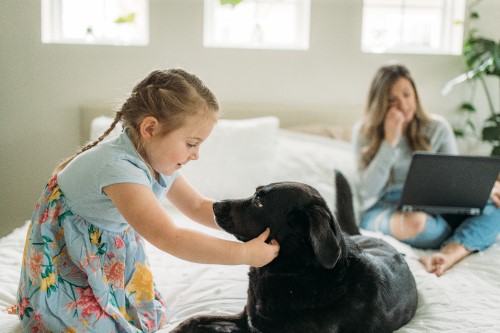
By Dr Alison Broad, Director of Primary Initial Teacher Education
School of Education, University of Birmingham.
On March 11th 2020, The World Health Organisation declared covid-19 a worldwide pandemic. As the UK retreated into lockdown, for many of us our normal lives were changed in an instant. A very recent study, has looked at the impact of lockdown and covid-19 in Italy, Spain and the UK through April and May 2020 and concludes that 41% of the UK population are at risk of mental health issues as a result of the covid-19 crisis, with participants reporting feeling low, depressed or hopeless about the future. The mental health charity, Mind, concurs, suggesting that many people are currently struggling with our mental health and states:
‘Coronavirus (Covid-19) is affecting all our lives. Things are changing fast, and many of us are worrying about what it all means for ourselves and for our loved ones. Those of us already living with mental health problems are facing extra challenges too’.
As an advocate of animal therapy myself, I have written this blog to consider the role that pets, and particularly dogs, might play, indeed might already be playing, in supporting wellbeing and mental health through the current covid-19 crisis. The blog considers various contexts, including universities, homes, hospital settings and schools.
Supporting wellbeing in universities
Student mental health and wellbeing is an increasing concern. Indeed in England, Mental Health First Aid (MHFA) reports that 78% of university students reported experiencing mental health issues in a given year, whilst fewer than half sought support.
Covid-19 is likely to have caused further anxieties to students. Whilst the cancellation of some exams brought relief from the stress of examinations, others probably felt cheated of their chance to demonstrate the culmination of all their hard work. Since this point, anxieties about examinations have probably been replaced by other new and more pressing concerns, which might include anxieties about families, illness and bereavement, social isolation, financial difficulties, graduate unemployment, and a very uncertain future ahead.
Universities certainly recognise the crucial role that they must continue to play in supporting student mental health and wellbeing through this time of crisis, however the reality of providing online support to students, locked down right across the world, is challenging. Pet therapy is unlikely to feature anywhere within the packages of online wellbeing support that are being offered, although Stanford University Hospital (SUH) is currently doing just this. It is offering online video K-9 conferences to staff and students, to extend the reach and emotional support of the hospital’s therapy dogs during the coronavirus pandemic.
Surge in buying pets during lockdown
 There have also been reports that dogs have been playing their part in supporting the wellbeing not just in universities but for people at home throughout the covid-19 crisis. This might explain why large numbers of people sought to acquire a new pet during lockdown. Battersea Dogs and Cats Home rehomed 86 dogs and 69 cats in just one week in March, twice the number for the same period in 2019. Similarly the Dogs Trust reported a 25% increase in rehoming during early lockdown and the Kennel Club reported that searches for a puppy on their website increased by 53% through February and March 2020, with the sharpest increase occurring during the week before lockdown.
There have also been reports that dogs have been playing their part in supporting the wellbeing not just in universities but for people at home throughout the covid-19 crisis. This might explain why large numbers of people sought to acquire a new pet during lockdown. Battersea Dogs and Cats Home rehomed 86 dogs and 69 cats in just one week in March, twice the number for the same period in 2019. Similarly the Dogs Trust reported a 25% increase in rehoming during early lockdown and the Kennel Club reported that searches for a puppy on their website increased by 53% through February and March 2020, with the sharpest increase occurring during the week before lockdown.
In an article, written by Elle Hunt, in the Guardian on 13th April 2020, she suggested how pets might have been supporting their owners through lockdown:
‘The benefits of pet ownership for health and wellbeing are well-documented, reducing loneliness and anxiety, lending daily structure, and lifting mood. And that’s in normal circumstances. In lockdown, pets are proving a lifesaver for many, providing companionship, consistency and even joy’.
Chandler et al. (2015) present a wider list of the potential benefits of pet ownership using the model that they describe as the ‘eight domains of pet ownership wellness’. Simply put, benefits of owning a pet can include:
1. Emotional and physical nurture
2. A sense of family
3. A sense of responsibility and purpose
4. Companionship
5. Social interaction
6. Personal and spiritual values
7. Fun/play
8. Physical health
Pets acting as a substitute for human interaction
 For many people, under normal circumstances, these ‘domains of wellness’ are probably fulfilled through engagement with friends, family, work and leisure. However, under covid-19 lockdown these normal channels of wellness suddenly became blocked and temporarily disappeared. Pets acted as substitutes, offering a new domain of wellness. This view is certainly supported by a very recent research paper entitled ‘People and their pets in the times of the covid-19 pandemic’ in which Vincent et al. (2020, p112.),suggests that ‘people are turning to their pets in the home … for catharsis that people cannot get from typical social interactions at this time.’
For many people, under normal circumstances, these ‘domains of wellness’ are probably fulfilled through engagement with friends, family, work and leisure. However, under covid-19 lockdown these normal channels of wellness suddenly became blocked and temporarily disappeared. Pets acted as substitutes, offering a new domain of wellness. This view is certainly supported by a very recent research paper entitled ‘People and their pets in the times of the covid-19 pandemic’ in which Vincent et al. (2020, p112.),suggests that ‘people are turning to their pets in the home … for catharsis that people cannot get from typical social interactions at this time.’
Vincent also suggested that as employees learnt to master new online working routines during the covid-19 lockdown, separated from their colleagues and communicating remotely, pets helped them to reconnect with colleagues in new and sometimes humorous ways. I have certainly witnessed this myself. During one recent Zoom meeting, a cat called Ginger George, casually strolled across his owner’s keyboard and stopped to present his bottom to the online audience. Vincent et al, propose that such encounters can charmingly disarm even the most challenging meeting and they suggest that we might even begin to see fellow workers in a new and more positive light.
The role of dogs in hospitals
There are indications that therapy dogs might have the potential to serve a particularly useful role within current hospital contexts. A trial conducted by Kline et al. (2020) compared the use of therapy dogs with art therapy as a means of reducing stress experienced by emergency medical staff in non covid-19 hospital settings. The study found that whilst both interventions reduced the physiological stress response (measured by salivary cortisol levels), the five minute dog therapy sessions reduced perceptions of stress as well, whilst the art therapy merely irritated participants. The researchers concluded that therapy dogs can reduce both the cognitive and physiological stress of the front line medical staff working in emergency departments.
What role can dogs play as children go back to school?
Therapy dogs might have a role to play in schools too over the coming months as children return to school. The DfE (2020) acknowledges that ‘returning to school is as important for children’s wellbeing as it is for their learning’. A recent UNICEF publication entitled ‘Children in lockdown: What Coronavirus means for UK children’ paints a bleak picture of the impact that covid-19 is having on childhood and how, for some children, it is has turned their lives upside down and exposed the fragile situation they live in.
Schools will clearly need to work hard to support their pupils emotionally as well as academically, as they begin to return to the classroom post lockdown, and school dogs could play a supportive role in this process. My own research into the role of dogs in schools indicates that school dogs can play an important role in supporting wellbeing (Broad, 2019). They can:
- Facilitate a calm learning environment where children feel safe and secure.
- Provide a listening ear for children who struggle to communicate with staff and peers and can support safeguarding processes, as children disclose safeguarding issues to the dog that they might not otherwise disclose.
- Play an effective role helping reluctant or anxious children return to school after lockdown as school dogs are highly effective in supporting home-school transitions.
- Work successfully by distracting these children from the anxiety of leaving their parent/carer at the school gates, whilst the act of stroking the dog has a calming effect on the children, reducing their anxiety sufficiently that they are able to walk into school.
Nevertheless, schools and hospitals will probably be reluctant to use therapy dogs, until they can be confident that dogs are not exacerbating the crisis by actually contributing to the spread of Coronavirus. Although the latest advice from the World Health Organisation (WHO) states that: ‘There is no evidence that companion animals or pets such as dogs or cats have been infected or could spread the virus that causes covid-19’, a recent paper considers the possible role that dogs might have played in transmission of covid-19 through Northern Italy in early 2020. (Goumenou, Spandidos and Tsatsakis, 2020). In addition, Daniella Dos Santos, the president of The British Veterinary Association (BVA) warned in a BBC report on April 8th 2020 that: ‘An animal’s fur could carry the virus for a time if a pet were to have come into contact with someone who was sick’. Whilst we therefore need to be very cautious of our interaction with dogs at this time because of the potential risk of human-to-dog then dog-to-human covid-19 infection, we can also acknowledge the vital role they can play to support people’s wellbeing, at home, at work and even at school.
You might also like to read Alison’s other University of Birmingham blogs:
Should dogs be introduced into the classroom?
Can animal assisted therapies help to tackle issues of wellbeing and mental health?

Love, love, love this. Its true dogs make me feel happier and less stressed. I don’t have my own due to work and I have a small flat, but enjoy dog/pet time with my friends and families animals. Regards Sally
Loved reading the article. I have two Golden Retrievers . I realised how precious their company were during the lockdown period. Not once did I feel lonely or depressed.